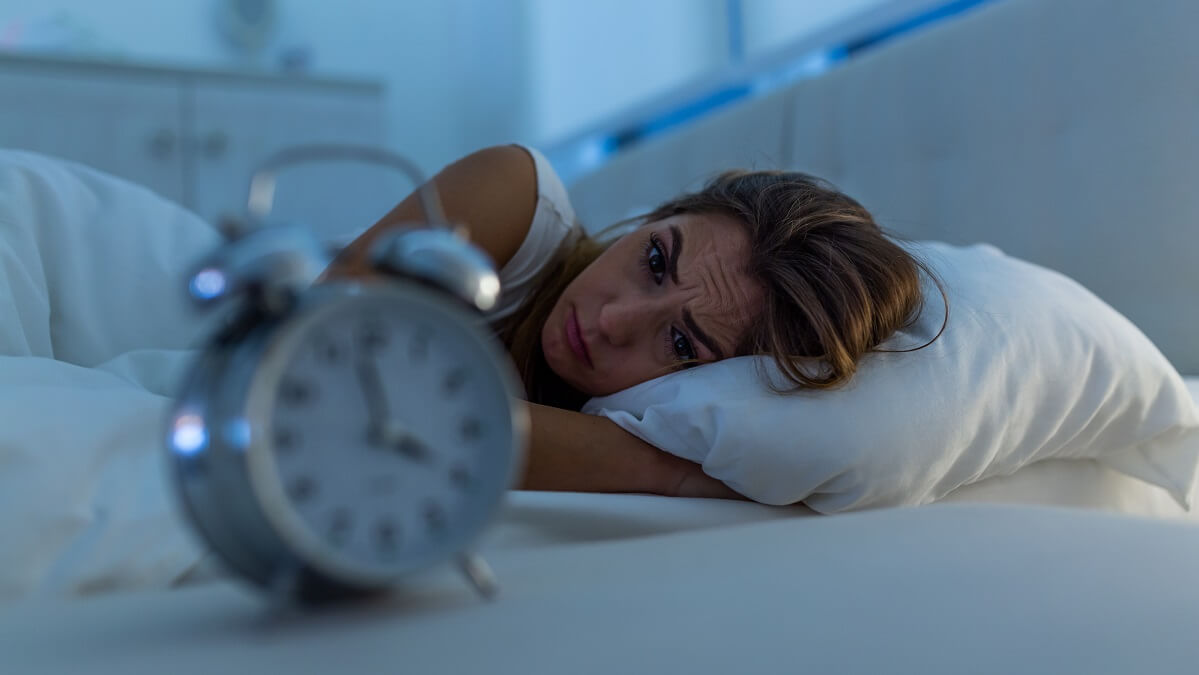Insomnia is a disorder that affects not just your sleep, but also your ability to function when you are awake.
The term is a blanket description that includes your body’s ability to fall asleep, stay asleep, waking up too early and not being able to get back to sleep.
So who is most likely to be affected by the condition and what can we do to improve our sleep health?
Read: Can your ‘sleep age’ predict how long you will live?
According to recent research, one in four women suffer from insomnia as compared to one in five men, and those pesky hormones are often to blame.
For younger women, it’s the hormones associated with their cycles, but for older women perimenopause or menopause may be the cause.
Hormonal changes
These two conditions include a big shift in the hormones oestrogen and progesterone, which can cause hot flushes, night sweats and itchiness.
Women are also more likely to suffer from depression and anxiety, which can also affect sleep.
And the pandemic didn’t help either.
In a paper published in BMJ Open, a group of scientists from Oxford University reported on their studies into the mental health effects of lockdown through sleep loss and disruption focusing on gender.
Read: The countries with the longest life expectancy
It found that women experienced severe sleep loss due to worry and single parents and those with young children had more serious sleep problems in the first four weeks of lockdown, particularly women.
It was a double whammy for frontline workers. Many reported sleep issues, but as the food retail and healthcare industries are predominantly female, they took a second hit to their sleep health.
According to Australia’s Sleep Health Foundation (SHF), older people need about the same amount of sleep as younger adults, but sleep differently with many napping during the day and waking earlier.
Mature sleep
Older people also tend to sleep lightly. They wake up more often and spend less time in deep, refreshing sleep.
The foundation claims that as we age the hormones that help us sleep are released earlier in the day. Some older adults may feel sleepy earlier than they used to, and they wake up in the early hours of the morning.
According to the SHF, there are several things you can do to improve your sleep, but the best one is keeping regular sleep hours.
Read: Could breathing be the key to lower blood pressure?
Try to go to bed about the same time every night and get out of bed about the same time every morning and avoid sleeping in, even if you have slept poorly the night before.
The SHF says regular sleep habits strengthen your sleep-wake rhythm
Other tips include getting plenty of exercise, going outside as much as you can, and only napping 15 to 20 minutes, as any longer can affect your ability to get to sleep.
However, poor sleep may not just be a symptom of ageing, it can also be the result of depression, anxiety, medication and pain.
So, when should you see a doctor?
The SHF recommends visiting your GP if your lack of sleep affects your ability to function or you are constantly sleepy during the day. Also, if you have a partner and they notice you have trouble breathing during the night.
There are many treatments for insomnia, sleep apnoea and snoring, and if your GP can’t help you, they may recommend a sleep specialist.
Do you have trouble sleeping? Have you noticed your sleep patterns changing? Why not share your thoughts in the comments section below?

